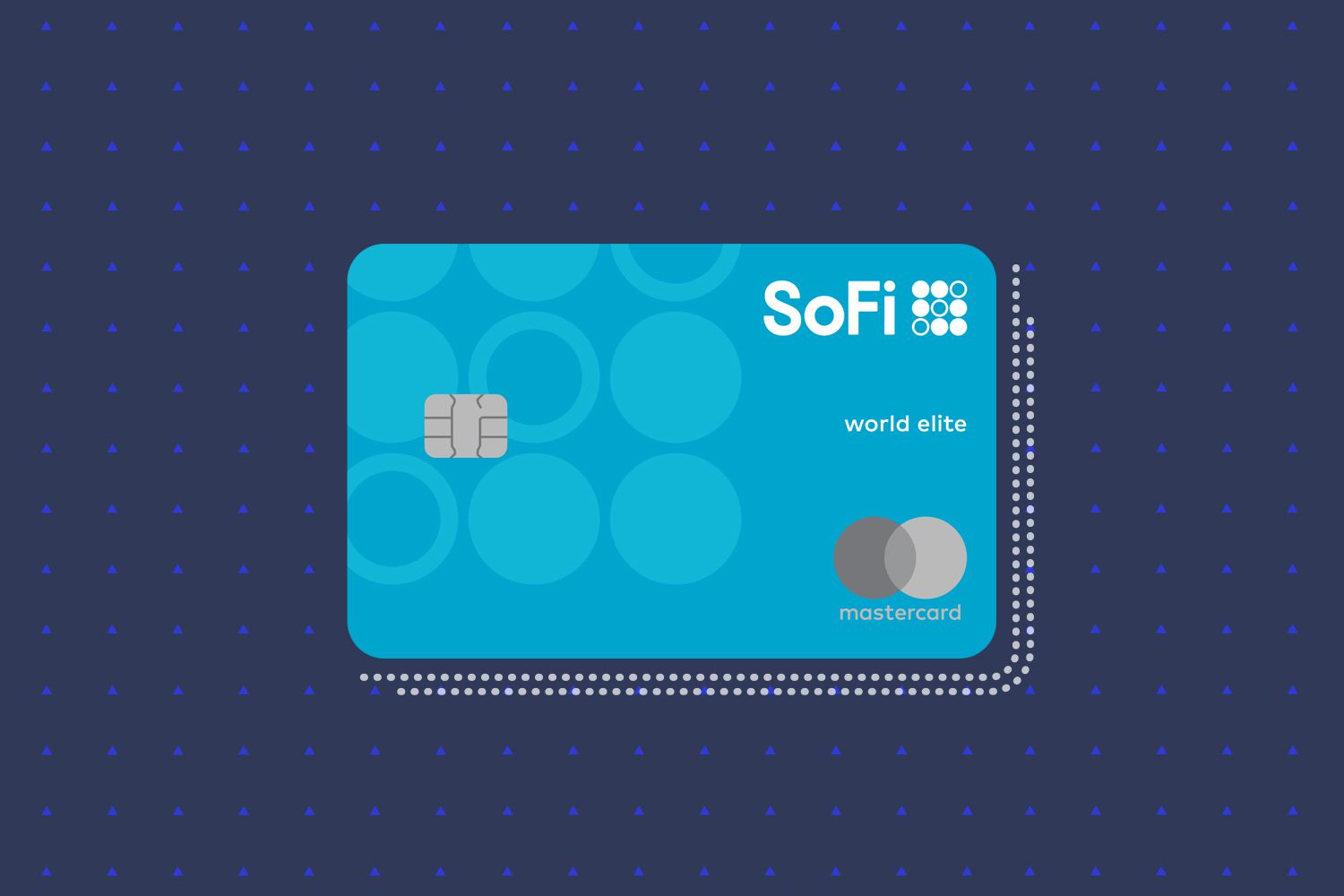

Finance
What Credit Bureau Does Citibank Pull
Modified: March 1, 2024
Find out which credit bureau Citibank pulls information from when assessing your creditworthiness. Gain insights into the finance industry and how it affects your credit.
(Many of the links in this article redirect to a specific reviewed product. Your purchase of these products through affiliate links helps to generate commission for LiveWell, at no extra cost. Learn more)
Table of Contents
Introduction
Welcome to the world of personal finance! Whether you’re new to the concept or a seasoned expert, it’s essential to understand the role of credit bureaus in shaping our financial lives. These bureaus play a vital role in the banking industry, helping lenders assess an individual’s creditworthiness and make informed decisions about granting loans or extending credit.
When it comes to banking, Citibank is a prominent name that often comes to mind. As one of the largest financial institutions globally, Citibank offers a wide range of banking services, including credit cards, loans, and mortgages. When applying for a loan or credit card at Citibank, many individuals wonder which credit bureau they pull data from to assess creditworthiness.
In this article, we will delve into the world of credit bureaus, explore the importance of credit bureaus in banking, and uncover the credit bureau that Citibank typically partners with. Understanding Citibank’s credit bureau partnerships can provide valuable insights into the lending process and help you navigate the complexities of managing your credit.
Overview of Credit Bureaus
Before diving into Citibank’s credit bureau partnerships, let’s take a step back and understand the role and function of credit bureaus in the financial ecosystem. Credit bureaus are entities that collect, gather, and maintain credit information on individuals and businesses. They serve as repositories of credit data and generate credit reports that lenders use to assess an individual’s creditworthiness.
There are three major credit bureaus in the United States: Equifax, Experian, and TransUnion. These bureaus collect data from various sources, such as banks, financial institutions, credit card companies, and even public records. They compile this information to create comprehensive credit profiles for individuals, including details about credit history, payment behavior, outstanding debts, and public records, such as bankruptcies or foreclosures.
When lenders, like Citibank, need to evaluate a customer’s creditworthiness, they rely on these credit reports provided by the bureaus. These reports help lenders assess the level of risk associated with extending credit to an individual, determining loan terms, interest rates, and credit limits.
It’s worth noting that credit bureaus operate independently of each other. This means that the information they collect, analyze, and report may vary slightly between bureaus. Lenders often pull credit reports from one or more bureaus to ensure a comprehensive evaluation of an individual’s creditworthiness.
Credit bureaus not only serve lenders but also help consumers maintain and manage their credit health. Individuals can request a copy of their credit report from each bureau annually, free of charge, to review the information and check for any inaccuracies or fraudulent activity that may impact their credit score.
Understanding the role and significance of credit bureaus is crucial for anyone seeking financial products or managing their credit. Now, let’s dive into how credit bureaus play a pivotal role in the banking industry and their partnerships with Citibank.
Importance of Credit Bureaus in Banking
Credit bureaus play a fundamental role in the banking industry, serving as a reliable source of information for lenders when evaluating a customer’s creditworthiness. Here are some reasons why credit bureaus are essential in the banking sector:
- Assessing Creditworthiness: Credit bureaus provide lenders with access to credit reports and credit scores, allowing them to assess an individual’s creditworthiness. This information helps lenders determine the level of risk associated with extending credit, making informed decisions about loan approvals and interest rates.
- Promoting Financial Stability: By providing comprehensive credit data, credit bureaus help lenders identify individuals who have a history of responsible credit management. This promotes financial stability in the banking system by encouraging responsible lending practices and reducing the risk of default.
- Enabling Accurate Loan Pricing: Credit bureaus provide lenders with insights into an applicant’s credit history, payment behavior, and outstanding debt. This information allows lenders like Citibank to accurately price loans and determine appropriate interest rates based on the level of risk associated with the borrower.
- Preventing Fraudulent Activity: Credit bureaus help identify instances of identity theft and fraudulent activity by comparing credit applications to existing credit profiles. This protects both lenders and consumers from potential financial losses and helps maintain the integrity of the banking system.
- Encouraging Financial Inclusion: Credit bureaus contribute to financial inclusion by providing lenders with a comprehensive view of an applicant’s credit profile. This enables lenders to make informed lending decisions, even for individuals with limited credit history, helping them access credit and other financial services.
Overall, credit bureaus play a critical role in the banking industry by providing lenders with accurate and reliable information about an individual’s creditworthiness. These bureaus help maintain a healthy and efficient lending ecosystem, promoting responsible lending practices, reducing risks for lenders, and enabling individuals to access the financial products and services they need.
Citibank and Credit Bureau Partnerships
As a leading global financial institution, Citibank works with multiple credit bureaus to gather credit information and assess the creditworthiness of its customers. The specific credit bureau that Citibank pulls data from may vary depending on factors such as the geographic location, product type, and individual circumstances.
Citibank understands the importance of working with reputable and reliable credit bureaus to ensure accurate and comprehensive credit information. By partnering with multiple credit bureaus, Citibank aims to obtain a holistic view of a customer’s credit profile and make informed lending decisions.
While Citibank does not publicly disclose the specific credit bureau partnerships, it is common for lenders to work with more than one credit bureau to gather a broad spectrum of credit data. This allows them to gather a more comprehensive view of an individual’s credit history and financial behavior, improving the accuracy of credit assessments.
Working with multiple credit bureau partners also helps Citibank mitigate any potential biases or discrepancies that may arise from relying on a single credit bureau’s data. By cross-referencing credit reports from different bureaus, Citibank can ensure the reliability and consistency of the credit information used in their decision-making process.
It’s important to note that regardless of the credit bureau partnership, the primary goal for Citibank remains the same: to assess an individual’s creditworthiness accurately and provide tailored financial solutions that meet the needs of their customers.
By collaborating with credit bureaus, Citibank can effectively evaluate credit risk, determine appropriate loan terms, and ensure responsible lending practices. These partnerships enable Citibank to provide personalized financial products and services to customers while maintaining the integrity and security of the lending process.
While the specific credit bureau used by Citibank for each individual’s credit assessment may not be publicly disclosed, rest assured that Citibank leverages the expertise and data from well-established credit bureaus to deliver reliable and informed lending decisions.
Which Credit Bureau Does Citibank Pull?
When it comes to determining which credit bureau Citibank pulls data from for credit assessments, it’s important to understand that Citibank has partnerships with all three major credit bureaus: Equifax, Experian, and TransUnion. The specific credit bureau used by Citibank may vary depending on various factors such as location, product type, and individual circumstances.
Since each credit bureau operates independently and has its own unique set of data, Citibank often pulls credit reports from more than one bureau to obtain a comprehensive view of an individual’s credit profile. This multi-bureau approach allows Citibank to gather a broader range of credit information, improving the accuracy of credit assessments and lending decisions.
The decision of which credit bureau to pull from is generally based on a few factors:
- Availability of Data: Citibank may choose to pull from a specific credit bureau if it has the most updated and complete data for a particular individual. This ensures that the credit assessment is based on the most accurate and comprehensive information available.
- Regional Variations: Depending on the geographic location of an individual, certain credit bureaus may have more extensive data coverage in that region. In such cases, Citibank may prioritize pulling credit reports from the credit bureau that has a stronger presence in that specific region.
- Product Type: Different credit bureaus may provide more specialized data or scoring models for specific product types. For example, for credit card applications, Citibank may prioritize pulling credit reports from the credit bureau that offers a scoring model tailored specifically to the credit card industry.
It’s worth mentioning that the specific credit bureau used by Citibank may not have a significant impact on the lending decision. Citibank considers a wide range of factors, including credit history, income, debt-to-income ratio, and other relevant information, in addition to the credit bureau data, to assess an individual’s creditworthiness.
While Citibank’s partnership with all three major credit bureaus ensures a comprehensive credit evaluation process, it’s important for individuals to regularly monitor their credit reports with all bureaus to ensure accuracy and identify any discrepancies or fraudulent activity. This practice can help maintain a healthy credit profile and minimize the risk of surprises when applying for credit.
Overall, Citibank’s relationships with all three major credit bureaus allow the bank to access a wealth of data to make the best-informed lending decisions. By utilizing multiple credit bureaus, Citibank aims to provide comprehensive and accurate credit assessment for its customers.
Factors That Influence Credit Bureau Choice
When it comes to choosing which credit bureau to pull data from, Citibank considers several factors to ensure accurate and comprehensive credit assessments. These factors are essential in determining the choice of credit bureau:
- Data Coverage and Accuracy: Citibank assesses the data coverage and accuracy of each credit bureau. They prioritize bureaus that have robust data collection methods and provide up-to-date and reliable credit information. Ensuring accurate credit data is crucial for making informed lending decisions.
- Regional Presence: The geographic location of an individual can influence the credit bureau choice. Certain credit bureaus may have a stronger presence and better data coverage in specific regions. Citibank aims to work with credit bureaus that have a comprehensive understanding of the local credit environment to evaluate creditworthiness effectively.
- Industry Expertise: Citibank considers credit bureaus that specialize in providing credit information and scoring models tailored to specific industries. For example, if Citibank is assessing an individual’s eligibility for a mortgage, they may prioritize credit bureaus that have expertise in mortgage lending and provide industry-specific credit scoring models.
- Regulatory Compliance: Compliance with regulatory guidelines is crucial for Citibank. They collaborate with credit bureaus that adhere to regulations and guidelines set forth by industry authorities like the Consumer Financial Protection Bureau (CFPB) and the Fair Credit Reporting Act (FCRA).
- Technology and Integration: Citibank considers the technological capabilities and integration options provided by credit bureaus. Integration with their existing systems and platforms allows for seamless access to credit information and efficient credit assessments.
- Risk Management: Citibank places great emphasis on risk management. They evaluate the risk assessment tools and methodologies employed by credit bureaus to ensure the accuracy and reliability of credit data. This helps Citibank identify potential risks associated with lending decisions accurately.
It’s important to note that while these factors influence the credit bureau choice, Citibank’s ultimate goal is to access the most accurate and comprehensive credit information to make well-informed lending decisions. By considering multiple factors, Citibank can maintain a holistic approach to credit assessments and mitigate potential biases or discrepancies that may arise from relying on a single credit bureau’s data.
Additionally, consumer preference and market demand may play a role in the credit bureau choice. If individuals express a strong preference for a particular credit bureau or if there is a market demand for accessing credit information from a specific bureau, Citibank may take these factors into consideration as well.
By carefully evaluating these factors, Citibank ensures that the chosen credit bureau(s) can provide accurate, reliable, and relevant credit information necessary for their credit assessment processes.
How Citibank Uses Credit Bureau Information
Citibank leverages credit bureau information as a critical component in its credit assessment process. The credit bureau data, combined with other relevant factors, helps Citibank make informed lending decisions and tailor financial solutions to meet the needs of its customers. Here are some key ways in which Citibank uses credit bureau information:
- Credit Assessment: Citibank utilizes credit bureau information to evaluate an individual’s creditworthiness. This includes reviewing the individual’s credit history, payment behavior, outstanding debts, and public records such as bankruptcies or foreclosures. By analyzing this data, Citibank can gauge the level of risk associated with extending credit and determine the terms and conditions of the loan or credit product.
- Scoring Models: Credit bureaus provide credit scores that summarize an individual’s creditworthiness in a numerical value. Citibank incorporates these credit scores into their credit assessment process to assess the risk level of an applicant. The credit score serves as a standardized measure to compare credit profiles and make consistent lending decisions.
- Identity Verification: Credit bureau information helps Citibank verify the identity of the applicant. By cross-referencing personal information and credit history, Citibank can ensure that the individual’s reported identity matches the data on file. This process helps prevent identity theft and fraudulent activity.
- Loan Pricing and Terms: Based on the credit bureau data, Citibank determines the appropriate pricing and terms for the loan or credit product. The creditworthiness of the applicant influences factors such as interest rates, credit limits, and repayment terms. Individuals with stronger credit history and higher credit scores may enjoy more favorable terms, while those with lower creditworthiness may have higher interest rates or stricter repayment terms.
- Monitoring and Management: Citibank regularly reviews credit bureau information to monitor the credit profiles of their existing customers. This helps them assess any changes in an individual’s creditworthiness and adjust credit limits, interest rates, or other terms accordingly. It also aids in identifying potential risks and offering appropriate credit management solutions to customers.
It’s important to note that while credit bureau information is a crucial component of Citibank’s credit assessment process, it is not the sole determining factor. Citibank considers other relevant factors, such as income, employment history, debt-to-income ratio, and the specific financial product being applied for. A holistic evaluation ensures that lending decisions align with the financial goals, capabilities, and risk appetite of both Citibank and the individuals seeking credit.
By leveraging credit bureau information, Citibank aims to make informed and responsible lending decisions while providing individuals with the financial products and services that best suit their creditworthiness and needs.+
Conclusion
Understanding the role of credit bureaus in the banking industry is vital for individuals navigating the world of personal finance. Citibank, as a prominent financial institution, collaborates with multiple credit bureaus to gather comprehensive credit information and make informed lending decisions.
The specific credit bureau that Citibank pulls data from may vary depending on factors such as location, product type, and individual circumstances. By working with multiple credit bureaus, Citibank aims to ensure accurate credit assessments and mitigate any biases or discrepancies that may arise from relying on a single credit bureau’s data.
Factors influencing the credit bureau choice for Citibank include data coverage and accuracy, regional presence, industry expertise, regulatory compliance, technology integration, and risk management. By considering these factors, Citibank can access the most reliable and relevant credit information necessary for making well-informed lending decisions.
Citibank uses credit bureau information in various ways, including credit assessments, scoring models, identity verification, loan pricing and terms, and ongoing credit monitoring. By analyzing credit history, payment behavior, and other relevant factors, Citibank can evaluate an individual’s creditworthiness and tailor financial solutions to meet their specific needs.
It’s important for individuals to regularly monitor their credit reports with all credit bureaus to ensure accuracy, identify any discrepancies, and maintain a healthy credit profile. By understanding how credit bureaus operate and how Citibank utilizes credit bureau information, individuals can navigate the credit application process with confidence and make informed financial decisions.
In conclusion, credit bureaus play a critical role in the banking industry, and Citibank’s partnerships with these bureaus ensure comprehensive credit evaluations. By utilizing credit bureau information alongside other relevant factors, Citibank strives to provide personalized financial products and services while maintaining the integrity and security of the lending process.














